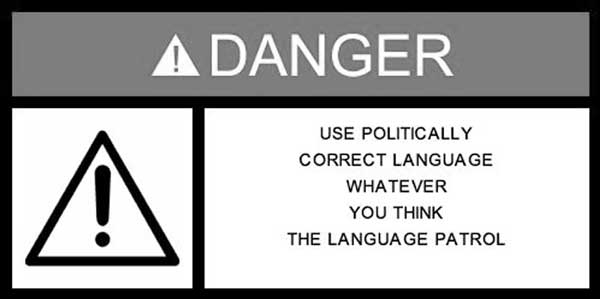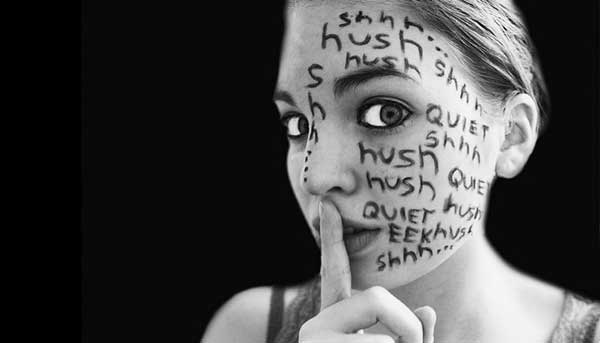Text: Carlos Remón
...............................................................
-"Your little boy is ethically disoriented, cerebrally challenged, motivationally deficient and morally different", says the teacher. -"Are you trying to say our little Johnny is dishonest, stupid, lazy and basically evil?", inquire the parents.
Not that you’re prone to comments like that at the EOI but if you happen to be teaching, say, teenagers you might as well recognize yourself in this situation when confronting the parents of a -well, to put it bluntly- student who is exactly that, dishonest, stupid, lazy and basically evil, no matter how you beat around the bush to avoid the harmful truth of inappropriate wording. And it seems that nowadays you can’t possibly use in Britain the term fail or failure with students, lest they (or rather, their parents) find it offensive- reluctant students who need a prod are suffering from deferred success. That’s what failing exams over and over again is called today.

Languages change under the pressure of influences- words drop out of use or change their meaning, some other terms are coined, and some others are used to raise awareness of how excluding or offensive a word can be. I remember a time whem there weren’t flight attendants, but air-hostesses, and firefighters were all, it seems, endowed with the dangling appendix that makes us distinctively male, and they were firemen. Gender discrimination has been pervasive in language, but finding gender-neutral terms without sounding awkward calls for imagination. A house-wife is now a home-maker, fair enough. A waitress is a server, right. But how do you call a woman who is a chairman if you don’t want to use sexist language? A chair? A chair used to have a back and four legs. Not anymore- it’s two legs only now.

All right, I understand that language is a deeply rooted representation of the world as we know it, and subsequently language evolves at the pace that society and culture evolves and blah blah blah. But this political correctness, so squeamishly aiming at branding names that do not cause the slightest offence, has resulted in not having black coffee, either!
I did a course in Edinburgh last summer and for breakfast I used to have caffe latte instead. And maybe just as well I did, because according to one of the lecturers, some people might have found the term offensive. To me, black coffee has a, well, how would you call the colour? Extremely dark? Personally, I’d call it (and I apologize for my racist comments)… black. She was a South-African herself, but not dark real dark brown, the opposite, with a rather-pale skin, if you know what I mean. Well, let’s face it, she was white. And she warned me that if I ever asked for a black coffee in South Africa I would certainly be in for trouble. Coffee without milk, that’s what she said I should call it from now on.
I’d stayed aloof from what was being a bit of a run-of-the-mill class anyway, but I just couldn’t stand it anymore. For there was, after the coffee without milk, newcomers or recent arrivers (the immigrants), indefinitely idled (unemployed) or the vertically challenged.
I beg your pardon. Vertically challenged?, I stifled a snort. -Excuse me, I interrupted. If I were really short, I said, I’d rather be called short than vertically challenged. There was an evil glint in her eyes. She must have thought that I was this weirdo in the audience that will start heckling. Now seriously, do people who are fat prefer the term horizontally challenged? Or does it alter the fact that men with a bald patch are instead only hair-disadvantaged? Euphemistic language. Pooh. Take, for example, military doublespeak- collateral damage for civilian casualties. Smart weapons. And friendly fire. Surely, the missiles were very chummy despite the fact that they killed hundreds!
Often, those newly-coined terms are more demeaning than the terms that were considered derogatory. Vertically challenged? I find it rather insulting. Language has become crippled by euphemisms. It is only because we are still prejudiced that when addressing some groups of people we are wary of the language we use and coin expressions that, funnily enough, are not less biased. Calling someone charm-free when you think they’re dead boring. Negative saver when someone just wastes money. Those collateral damages. I might as well disguise my prejudices under a layer of politically-correct words and get away with it. Dig deeper than those neatly thought-out words and see what you’ll find: self-righteous indignation and complacency.
When we are racking our brains to find an euphemism for short to minimize the offence we are actually dodging the real issue- inequality. The bottom line is that I’m still categorising that person according to gender, race, sexual orientation, disability or age. Or how tall they are.
We also had to read in class an article about the Scottish police being told to mind their Ps and Qs and refrain from asking people if they are married in case it causes offence to gays. People are very quick to take offence, said a constable. Police turned into language vigilantes.
By this time I knew the lecturer had a bone to pick with me and I decided to scuttle away before she started calling me nasty things, that I was for example getting chronologically challenged (old) and differently sized (fat), and going by my intervention I was emotionally different (crazy). I could do without her remarks. I nipped downstairs to the cafeteria and to put things into practice asked for a coffee without milk. The woman looked askance at me. You mean black coffee?, she stressed. For a second I wondered if she was reminiscing about slavery. Nope, I don’t think so. She must have thought I was a moron, but I could have hugged her. Exactly, I replied, black coffee, please.